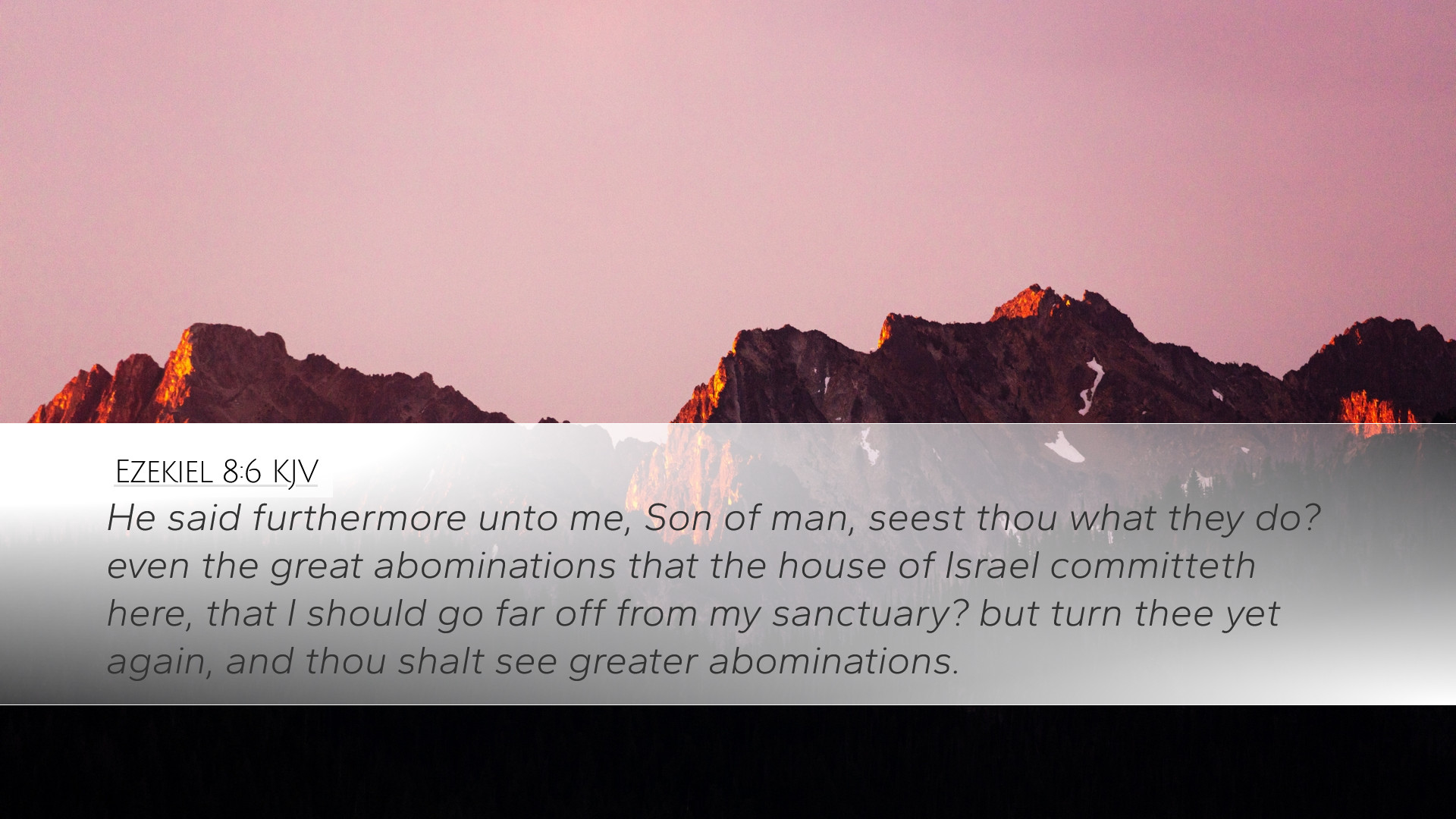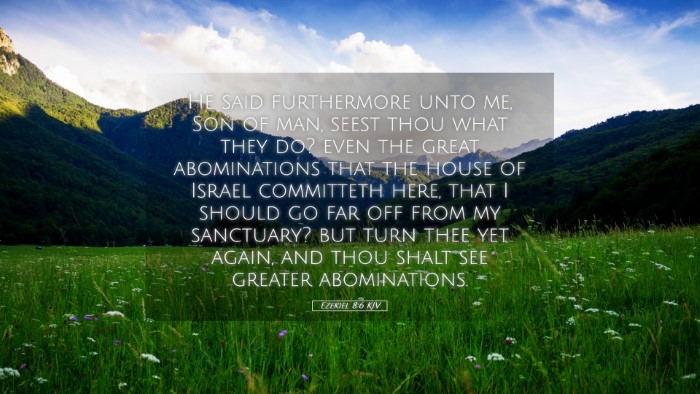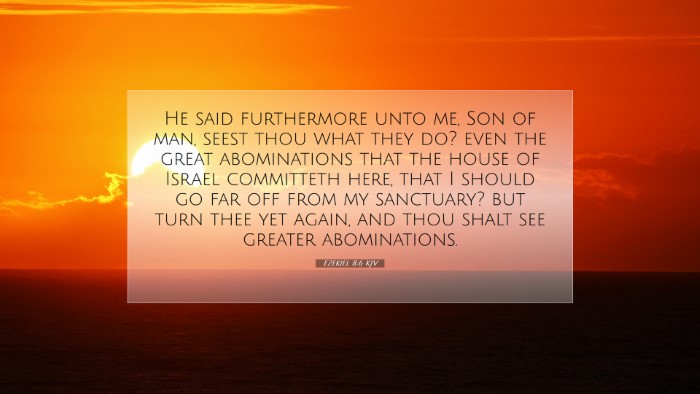Commentary on Ezekiel 8:6
Verse Context: Ezekiel 8:6 states:
"And he said unto me, Son of man, seest thou what they do? even the great abominations that the house of Israel committeth here, that I should go far off from my sanctuary? but turn thee yet again, and thou shalt see greater abominations."
Introduction
This verse is pivotal in understanding the prophetic commissioning of Ezekiel and the spiritual state of Israel during the Babylonian exile. The context reveals God’s displeasure with the practices of His people and serves as a warning against idolatry and disobedience.
Exegesis and Insights
1. Divine Inquiry
“And he said unto me, Son of man, seest thou what they do?” The term “Son of man” designates Ezekiel’s humanity, emphasizing that God, through His prophet, observes the sinful actions of His people. This question implies a need for vigilant awareness of spiritual and moral decay.
2. The Nature of Abominations
The Hebrew word for “abominations” (תּוֹעֵבוֹת - toʿēḇōṯ) indicates something detestable or loathsome. The abominations mentioned are acts contrary to God’s commands, illustrating the seriousness of Israel's sins. The phrase “great abominations” suggests escalating severity in their moral and spiritual failures.
3. The House of Israel
When God refers to “the house of Israel,” it encompasses not just individuals but the collective identity of God’s covenant people. This communal failure is significant, as it indicates the breakdown of societal norms and spiritual fidelity.
4. God’s Sanctuary
“that I should go far off from my sanctuary.” Here, God expresses a distancing from His presence due to the sinfulness of the people. It reflects the principle that unholy behavior separates humanity from divine holiness. Matthew Henry notes that God’s sanctuary symbolizes His presence and favor, which are compromised by sin.
5. A Call to Reflection
The query posed to Ezekiel serves as a reflective mechanism for both the prophet and Israel. It urges an examination of spiritual conditions and consequences. Albert Barnes comments on the importance of recognizing the abominations as a prerequisite to restoration.
6. Escalation of Sin
“but turn thee yet again, and thou shalt see greater abominations.” This invitation to further insight indicates an unfolding revelation of sin. Adam Clarke remarks that God’s intention is not merely to expose sin, but to highlight the depth and breadth of Israel's moral decline. The idea is that knowledge of sin should lead to repentance and a return to God.
Theological Reflections
1. The Seriousness of Sin
Sin, particularly when it is habitual and communal, has severe implications for the relationship between God and His people. The text speaks to the necessity of confronting sin honestly within the community of faith.
2. God's Mercy and Judgment
The invitation to observe greater abominations serves dual purposes: it underscores God's judgment while simultaneously offering an opportunity for repentance. This duality is a recurring theme throughout the prophetic literature.
3. Idolatry in Contemporary Context
This passage resonates beyond its immediate context. Modern believers are called to evaluate their own “abominations,” which may take the form of idolatry, materialism, or ethical compromises. It serves as a warning against allowing distractions to distance us from God’s presence.
Conclusion
Ezekiel 8:6 provides profound insights into the dangers of sin and the importance of discernment in the spiritual community. Pastors, theologians, and all who study Scripture are encouraged to look deeply into their practices and beliefs, ensuring they align with God's holiness. The passage is a clarion call to vigilance, reflection, and an earnest call to return to obedience in the face of spiritual decline.


